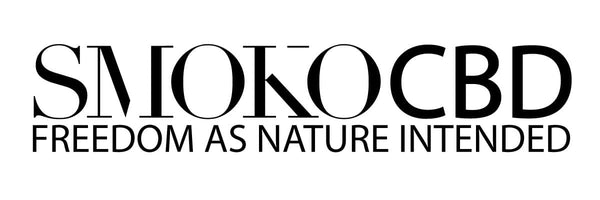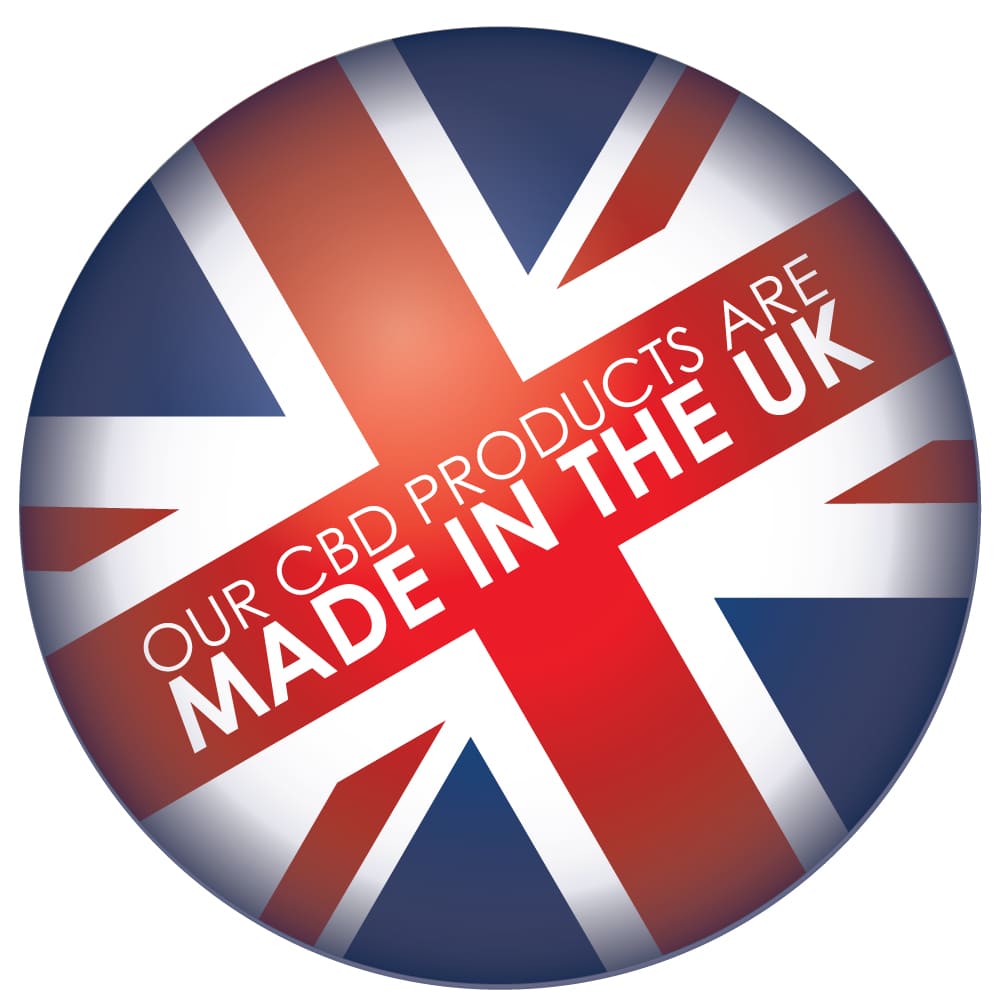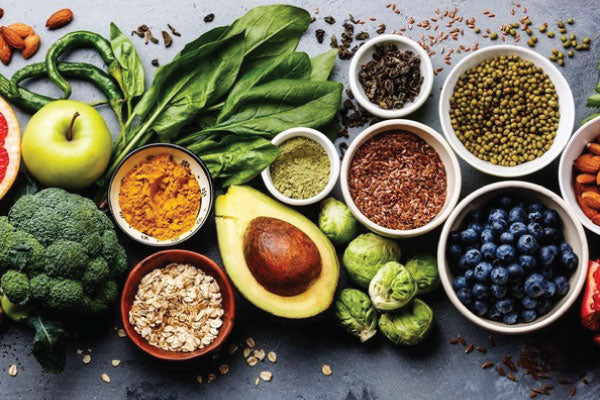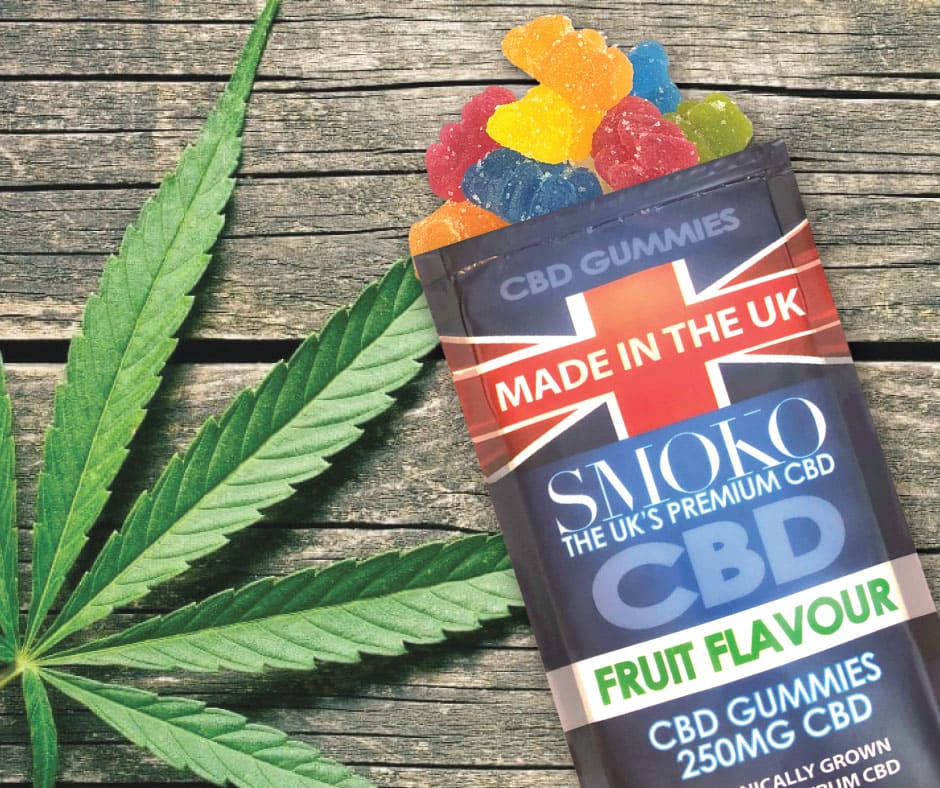The straight answer is no. On its own, pure CBD will not make you fail a drug test. Standard workplace drug screenings in the UK are looking for THC (tetrahydrocannabinol) – the compound in cannabis that gets you high – not CBD. The real risk, however, comes from the fact that many CBD products on the market contain small, sometimes undisclosed, amounts of THC.
Will CBD Make You Fail a Drug Test?
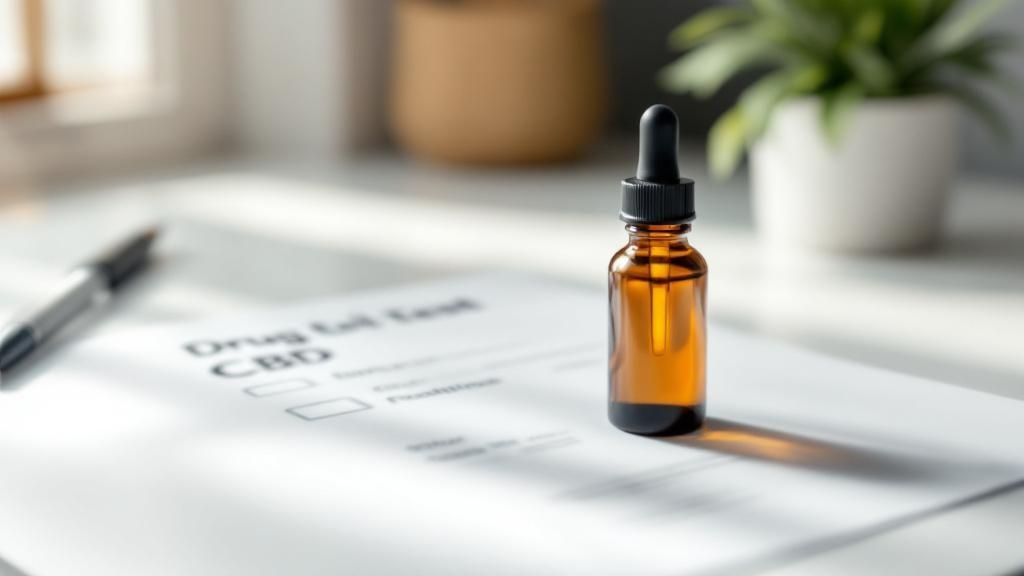
It’s completely understandable to feel a bit confused about CBD, especially when you have a job to think about. The main thing to remember is that the concern isn’t about CBD at all, but about its well-known cousin, THC.
Think of it like this: a drug test is a security guard on the lookout for one specific individual – and that individual is THC, not CBD.
So, the whole issue really comes down to the quality and type of CBD product you're using. A genuinely high-quality, pure CBD product shouldn't cause any problems. The danger creeps in when you encounter products from a poorly regulated market, which might be mislabelled or contain more THC than the legal limit allows.
The Critical Difference Between CBD and THC
It’s vital to get your head around what drug tests are actually looking for. They aren't designed to screen for cannabidiol. Their one and only target is THC and its metabolites, which are the chemical footprints your body leaves behind after processing it.
Here in the UK, any legally sold CBD product must contain less than 0.2% THC (or 1mg per container). This tiny amount is usually far too low to be picked up by standard tests, which are calibrated to detect the much higher levels associated with recreational cannabis use. You can get a deeper dive into UK CBD regulations and drug testing on britishcbd.net.
This is precisely why your choice of CBD product is so important. Using CBD safely is entirely possible, you just need to know what to look for and what to steer clear of.
The biggest risk factor for failing a drug test isn't the CBD itself. It's the type of CBD product you choose and the trace THC that might be tagging along with it.
To make this crystal clear, let's look at how the different types of CBD measure up when it comes to risk.
Here’s a quick table to help you understand the risk associated with each type of CBD.
CBD Type and Drug Test Risk
|
Contains trace amounts (under 0.2% legally) |
Low to Moderate |
|
|
All THC is removed |
Very Low |
|
|
Pure CBD; no other compounds |
Extremely Low |
As you can see, sticking with broad-spectrum or isolate products dramatically lowers your risk, giving you much-needed peace of mind.
Understanding What Drug Tests Actually Detect
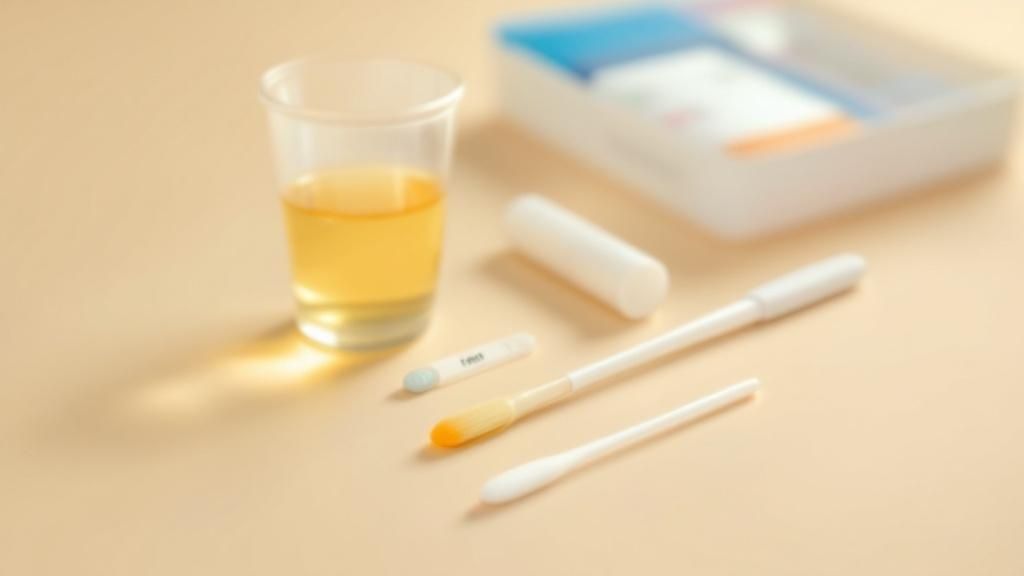
It’s probably the biggest question on anyone's mind before they try CBD: can it make me fail a drug test? The short answer is no, but the real story is a bit more nuanced. Let's clear up the confusion.
Think of a standard workplace drug test like a bouncer at a nightclub with a very specific 'not-allowed' list. That bouncer is only looking for one troublemaker: THC (tetrahydrocannabinol). CBD, its well-behaved, non-psychoactive cousin, isn't even on the list.
This is the most critical point to get your head around. Drug screenings aren't designed to find or react to CBD at all. Instead, they are set up to spot the chemical trail left behind after your body has processed THC.
When you consume a product containing THC, your body breaks it down into various compounds called metabolites. It's one of these specific metabolites, THC-COOH, that the tests are actually looking for.
So, to put it simply, a drug test isn't searching for the original substance you might have used. It's looking for the 'evidence' your body leaves behind. When it comes to cannabis, that evidence is THC-COOH, not CBD.
Common Testing Methods and Detection Windows
In the UK, employers generally use one of three main methods for drug screening. Each one has a different "memory"—a different window of time during which it can detect those THC metabolites. Knowing these windows helps you understand the potential risks.
-
Urine Tests: This is by far the most common method for workplace testing. For someone who uses THC occasionally, it can be detectable for 3 to 15 days. For a regular or heavy user, that window can stretch to 30 days or even longer.
-
Saliva Tests: These have a much shorter detection window, which is why they're often used for things like roadside checks. THC is typically only detectable in saliva for about 1 to 3 days.
-
Hair Follicle Tests: While less common for routine employment screening because they're more expensive, hair tests have the longest memory of all. They can pick up THC metabolites for up to 90 days after use.
This is exactly why it's so important to know not just what kind of test you might face, but also what's really in your CBD product. People use CBD for a whole host of reasons, as you can see in our guide on the potential health benefits of CBD, but any unintended THC can cause real problems.
The Role of Cutoff Levels
To avoid penalising people for trivial exposure—like being in a room with someone else smoking—tests have a cutoff level. For a typical urine test, this is usually set at 50 nanograms per millilitre (ng/mL). You will only get a positive result if the concentration of THC metabolites in your sample is above this threshold.
This means a minuscule, trace amount of THC from a badly made or mislabelled CBD product might not be enough to trigger a failure. Here's the catch, though: THC is fat-soluble, so if you use a product containing small amounts of it regularly, those traces can build up in your body's fat cells over time.
It’s this slow accumulation that could eventually push you over the cutoff limit, leading to an unexpected and very unwelcome failed test.
When it comes to CBD and drug tests, the single most important factor is the type of CBD you're taking. Not all products are the same, and knowing the difference between them is absolutely crucial for your peace of mind.
Let's break down the three main forms you'll find on the market. Think of it a bit like buying fruit juice. You can get a pure apple juice, a mixed fruit cordial, or a thick smoothie that has every part of the fruit blended in. Each one has a very different make-up, and in the world of CBD, that composition is what really matters.
CBD Isolate: The Safest Option
Just like its name suggests, CBD Isolate is the purest form of CBD available. Through a very precise extraction process, the CBD compound is completely separated from everything else in the plant—all the other cannabinoids, terpenes, and flavonoids are removed.
What you end up with is a product that is typically over 99% pure CBD. For anyone worried about a drug test, this is your safest bet. With all the THC meticulously stripped away, the risk of it showing up and causing a positive result is virtually zero. It’s the go-to choice for professionals, athletes, or anyone whose job involves regular, strict drug screening.
Broad-Spectrum CBD: The Middle Ground
Next up is broad-spectrum CBD, which offers a fantastic middle-of-the-road option. It contains a wide array of beneficial cannabinoids and terpenes from the hemp plant, but with one critical difference: the THC has been specifically removed.
This means you still get to experience some of the "entourage effect"—the idea that all the plant compounds work better together—without the risk that comes with consuming THC. While the risk is incredibly low, it's just a fraction higher than with isolate. This is mainly due to the slim possibility of tiny, undetectable trace amounts remaining after the removal process, or potential cross-contamination at a manufacturing facility. For most people, though, it’s considered a very safe choice.
Key Takeaway: For a good balance of benefits and safety, broad-spectrum CBD gives you a rich cannabinoid profile with the THC deliberately taken out, making it a reliable option for most people.
Full-Spectrum CBD: The One with a Risk
Finally, we have full-spectrum CBD. This version contains every compound found naturally in the plant it came from. That means CBD, other cannabinoids, terpenes, and, most importantly, trace amounts of THC. In the UK, this amount must legally be below 0.2%.
While that level is tiny, the real risk with full-spectrum products comes from accumulation. If you take a full-spectrum CBD oil every day, that small amount of THC can slowly build up in your body’s fat cells over weeks or months. Eventually, this build-up could push the level of THC metabolites in your system over the cut-off point for a standard drug test, leading to an unexpected positive result.
This infographic shows the direct link between full-spectrum products and the potential for a positive test.
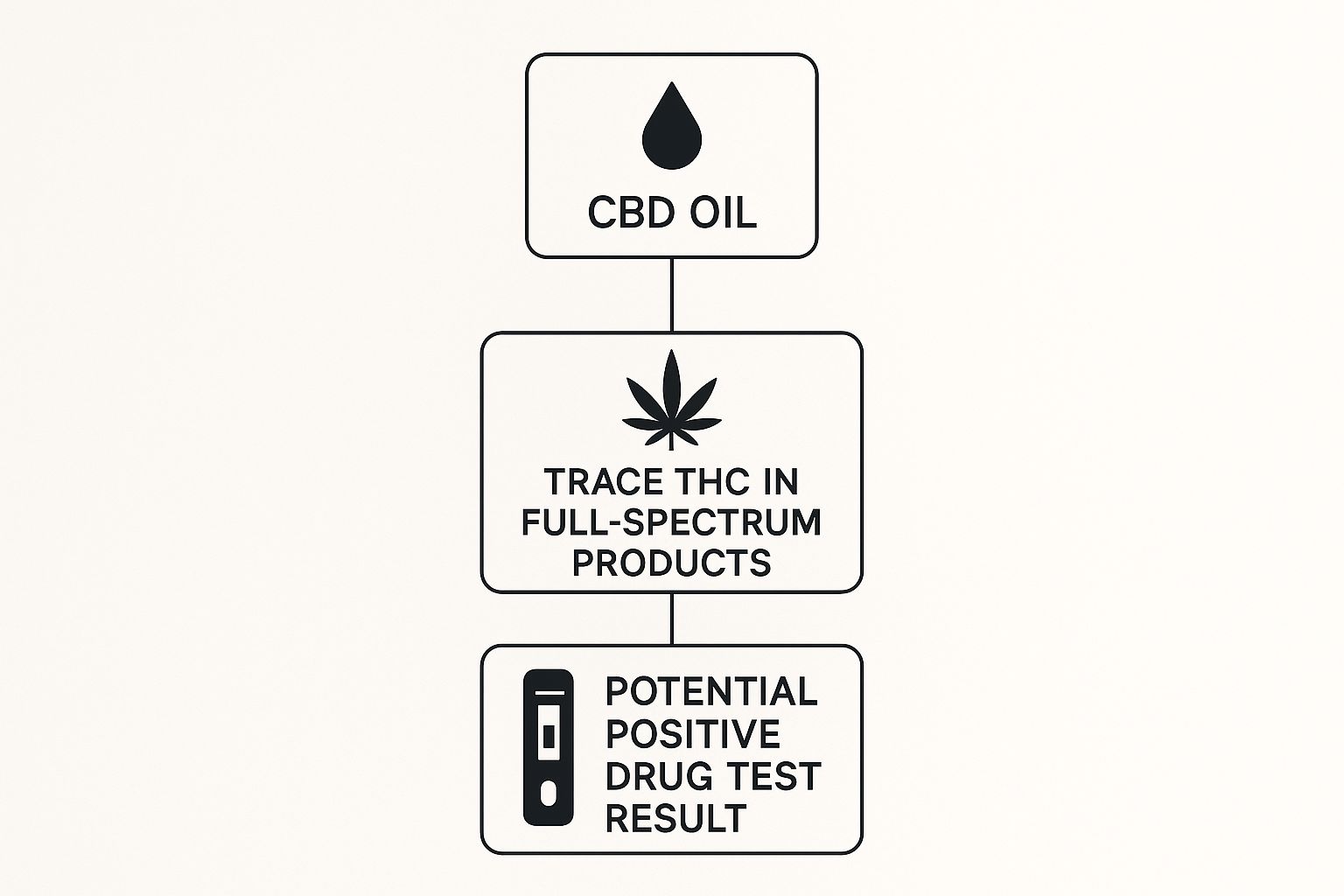
The key thing to realise here is that the CBD itself isn't the problem. It's the trace THC included in full-spectrum formulas that can, over time, lead directly to a positive test result.
Of all the reasons someone might unexpectedly fail a drug test after using CBD, the biggest culprit often has very little to do with the CBD itself. The problem almost always comes down to a poorly regulated market, where misleading labels and shoddy manufacturing are unfortunately all too common.
Think of it like this: if you have a severe nut allergy, you wouldn't trust a "nut-free" biscuit made in a factory that also churns out peanut butter cookies, would you? The risk of cross-contamination is just too high. The same logic applies to the CBD industry. A product can be labelled "THC-Free," but if it's made in a facility that also handles full-spectrum products (which contain THC), tiny amounts can easily find their way into your product.
Even worse is when companies are just plain dishonest. Some products simply contain way more THC than they admit on the bottle. This isn't just a hypothetical problem; it’s a well-documented issue.
The Dangers of an Unregulated Market
With a lack of consistent, official oversight, the responsibility to stay safe falls squarely on you, the consumer. You have to be vigilant. Research has repeatedly shown a massive gap between what's advertised on a CBD bottle and what's actually inside.
For instance, one independent UK study looked at 29 different over-the-counter CBD products. The results were shocking. Only 38% of them had CBD levels within 10% of what was claimed on the label. Even more concerning for our purposes, a staggering 55% of these products contained measurable levels of THC, with the average being 0.04%. You can read the full UK CBD product analysis on pmc.ncbi.nlm.nih.gov for yourself.
This is precisely why choosing a brand you can trust is absolutely critical. A reputable company will always give you proof of what’s in their products, empowering you to check their claims. And that's where one particular document becomes your best friend.
Your Most Important Tool: The Certificate of Analysis
The single best way to protect yourself is to demand to see a Certificate of Analysis (CoA) for any CBD product you're thinking of buying. A CoA is a lab report from an independent, third-party laboratory that breaks down the exact chemical profile of a product. It's your only real window into what you're about to put in your body.
You don't need a chemistry degree to read a CoA. You just need to know what you're looking for.
What to Check on a CoA:
-
Cannabinoid Profile: First, find the section that lists all the cannabinoids. You're looking for terms like "THC," "Δ9-THC," or "Tetrahydrocannabinol."
-
Check the Result: The number or result next to THC should say "ND" (which means Not Detected), "LOD" (Limit of Detection), or simply "0%." This is your confirmation that the product is THC-free.
-
Verify CBD Content: While you're at it, have a quick look at the CBD percentage. Does it match what's advertised on the bottle? This is a great indicator of a brand's honesty.
By getting comfortable with reading these reports, you can easily sidestep unreliable brands and safeguard your career. And while you might be focused on cannabinoids for drug testing reasons, remember that overall product quality also affects how CBD works with your body. For those interested in its wider wellness applications, you can learn more about using CBD for gut health in our detailed guide.
Personal Factors That Affect THC Detection
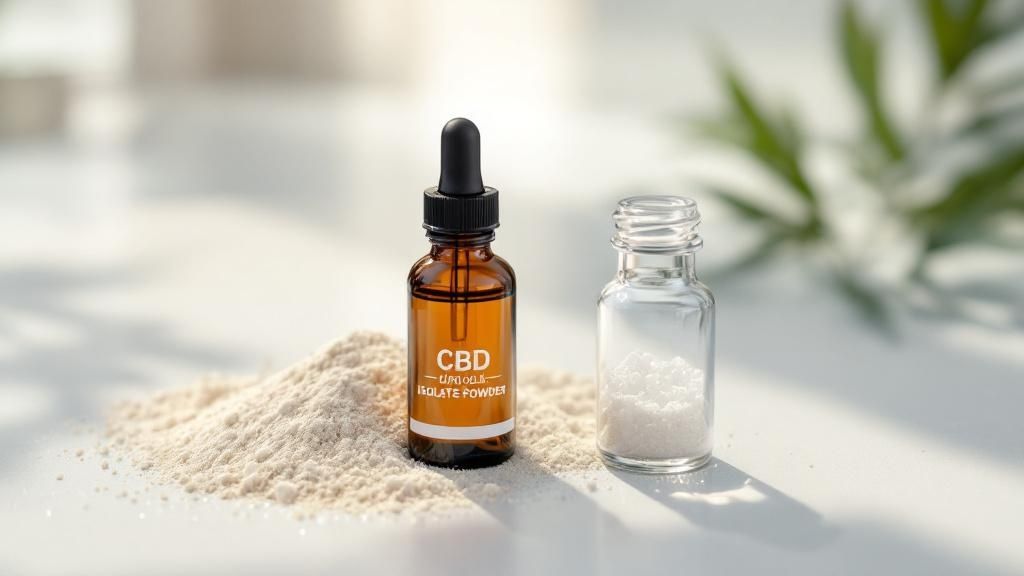
Ever wondered why two people can use the exact same CBD product, but only one of them flags a positive on a drug test? The answer isn't just in the bottle; it's also in our bodies. A few key personal factors can dramatically change how your body handles even trace amounts of THC, creating a unique risk profile for every single user.
Think about that friend who can eat anything and not gain a pound. The same principle applies here. Your individual metabolism is the star of the show. If you have a faster metabolic rate, your body is more efficient at processing and clearing out THC metabolites, which means they won't stick around for as long.
On the flip side, a slower metabolism means those chemical footprints can hang around in your system for much longer. This is a huge reason why it’s almost impossible to give a one-size-fits-all answer for detection times.
Your Usage Habits Matter
It’s not just about how your body is built, but also how you use CBD. The amount you take and how often you take it play a massive role in whether trace levels of THC have a chance to build up.
-
Dosage: It's simple maths, really. A larger dose of a full-spectrum CBD product will naturally introduce more THC into your system, even if the percentage is tiny.
-
Frequency: This is probably the biggest factor. Taking a single, small dose of a full-spectrum oil is very unlikely to cause any problems. But taking that same dose every single day for weeks? That’s when accumulation can become a real concern.
The risk really comes from consistent, long-term use. Picture adding one drop of food colouring to a glass of water each day. A single drop is barely noticeable. But after a month, that water will be clearly tinted. This is exactly how THC can accumulate in your body over time.
Body Fat and Its Role in Storing THC
Another crucial piece of the puzzle is your body fat percentage. THC is what scientists call 'lipophilic' – a fancy way of saying it loves fat. It readily dissolves in and gets stored by your body’s fat cells.
This means that someone with a higher body fat percentage has more 'storage units' for THC and its by-products. When your body burns those fat cells for energy, the stored THC gets slowly released back into your bloodstream. This can keep THC detectable in your system for a surprisingly long time. It’s vital to understand the difference between THC and CBD, as only THC has this unique fat-storing characteristic.
Leading UK labs agree that while properly regulated, legal CBD products are highly unlikely to cause a failed test, the danger lies with unregulated products. As the experts at AlphaBiolabs point out, illicit CBD goods can contain enough THC to trigger a positive result in standard drug screenings. You can discover more insights about these findings on AlphaBiolabs.co.uk.
Frequently Asked Questions About CBD and Drug Tests
Even with a good grasp of the science, you might still have a few questions buzzing around. That’s perfectly normal. Let's walk through some of the most common worries to give you total clarity and confidence when you're navigating the world of CBD and drug tests.
We'll tackle these with clear, straightforward answers to help you make informed decisions, especially when your job could be on the line. These are the practical, real-world scenarios that lots of people find themselves thinking about.
Can I Fail a Test from Secondhand Cannabis Smoke?
This is a really common worry, but you can generally relax on this one. Failing a drug test just from being in a room where other people are smoking cannabis is extremely unlikely. For you to get enough THC in your system from passive exposure, the situation would have to be pretty intense.
Imagine being stuck in a small, completely unventilated room—what some people call a "hotbox" scenario—for hours on end. While it's theoretically possible you could inhale enough THC to show up on a test, it’s not a realistic concern for everyday life. Standard workplace tests have cut-off levels designed specifically to ignore this kind of tiny, accidental exposure.
What Should I Do If I Fail a Drug Test After Taking CBD?
Getting a positive result back can be a shock, but the most important thing is not to panic. There are some immediate, practical steps you can take to handle the situation professionally. Acting quickly and having your information ready is key.
-
Request a Confirmation Test: The first test you take is usually a basic screening test. You have the right to ask for a more advanced and accurate confirmation test, which is typically a gas chromatography-mass spectrometry (GC-MS) test. This method is far more precise and can tell the difference between various cannabinoids, which could clear things up.
-
Provide Your Product Information: Straight away, get all the details of the CBD product you’ve been taking. This means the brand, the product type, and—most importantly—the Certificate of Analysis (CoA) or third-party lab report for that exact batch. Your strongest piece of evidence is a lab report that clearly states "Non-Detect" or 0% THC.
-
Be Honest and Open: It’s often best to disclose that you use a legal CBD product. Being upfront shows you have nothing to hide and gives crucial context to the situation.
Can My Employer Fire Me for Using Legal CBD?
This is where things can get a bit complicated. The answer really depends on UK employment law and, crucially, your specific company's policies. While CBD itself is legal here in the UK, your employment contract can set its own rules about workplace conduct and safety.
Generally, an employer can't fire you for using a legal substance in your own time. However, if your workplace has a strict zero-tolerance policy on all cannabis-related compounds (even trace amounts of THC), a positive test could be seen as a breach of your contract. For some more general answers, feel free to check out our guide covering frequently asked questions about CBD.
The Bottom Line: Your employment contract is the ultimate guide. If you're in a safety-critical role, like operating heavy machinery or driving, companies are understandably much stricter. Always, always review your workplace drug and alcohol policy before you start taking any new supplement, including CBD.
At SMOKO CBD, we believe in complete transparency. Our broad-spectrum CBD products are made in the UK from organically grown cannabis and are rigorously third-party lab tested to ensure they are THC-free, giving you total peace of mind. Explore our premium CBD oils and gummies at https://smokocbd.com.
